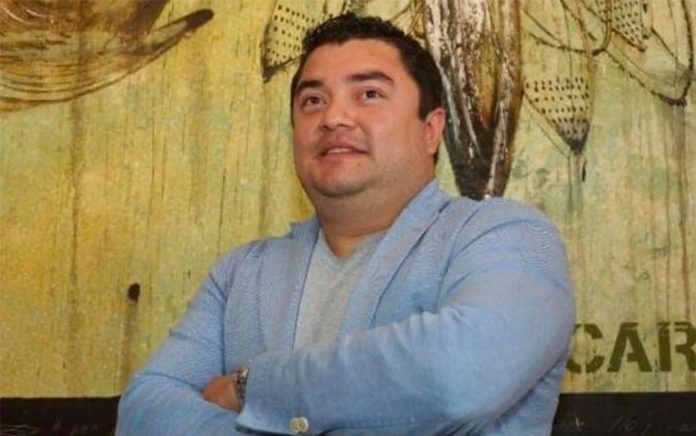A scientist from Oaxaca who pleaded guilty to spying for Russia in the United States was sentenced last week to four years and one day in U.S. federal prison.
Héctor Cabrera Fuentes, a microbiologist from the Isthmus of Tehuantepec region who led a double life with two different families, was sentenced June 21 in Miami federal court. After maintaining his innocence for two years, the 37-year-old pleaded guilty in February to acting on behalf of the Russian government in the United States without notifying the U.S. attorney general.
Cabrera was arrested in February 2020 at Miami International Airport, where he and his Mexican wife – he also has a Russian wife – were waiting to board a flight to Mexico City.
According to an Associated Press report, the commencement of the scientist’s “botched intelligence mission” can be traced back to a 2019 trip his Russian wife and their two daughters took from Germany to Russia to take care of a bureaucratic matter. An FBI agent said in an affidavit that accompanied the original indictment against Cabrera that the woman was prevented from leaving Russia when she attempted to return to Germany. Cabrera subsequently traveled to Russia to see his Russian family and while in the country was allegedly contacted by a Russian official he had met years earlier in a work-related meeting.
The Russian official, who isn’t identified in U.S. court documents, told Cabrera that his family shouldn’t go to Europe or apply for a United States visa. According to the FBI, AP reported, it was around that time that the scientist began to suspect that the official worked for the Federal Security Service of the Russian Federation, or FSB.
At a later meeting in Moscow, the official showed Cabrera emails he had written when he was apparently looking for real estate in Miami. According to the original indictment, the Russian subsequently told the Mexican, “we can help each other.”
Cabrera agreed to the official’s request to travel to Miami, and – using the name of an associate – rented an apartment in the same complex where a U.S. government informant lived. The Russian official asked the scientist to keep tabs on the informant and take note of the location of his vehicle. Cabrera told U.S. authorities that he agreed to act as a spy in exchange for Russia allowing him to remove his two daughters from that country.
AP noted that the individual Cabrera was tasked with monitoring is not identified in court documents and is described only as a United States government “confidential human source” who had provided information about Russian intelligence activities that affect U.S. national security interests.
The day before he was arrested, the scientist and his Mexican wife “attracted the attention of a security guard as they were caught on surveillance tape tailgating another vehicle onto the premises of a Miami-area condominium and snapping a photo of the U.S. source’s car and license plate,” AP said. By taking a photo, Cabrera ignored Russia’s instructions not to take pictures but to just jot down the location of the informant’s vehicle, the news agency said.
Before he was arrested, Cabrera worked at the Duke-NUS Medical School in Singapore, which is jointly run by North Carolina’s Duke University and the National University of Singapore. It was unclear how he maintained that job while apparently carrying out surveillance for Russia in Florida during a period of approximately one year.
In 2018, the FEMSA Biotechnology Center at the Monterrey Institute of Technology in Nuevo León appointed him director. When appointing him, the center noted that Cabrera had a doctorate in molecular biology from a Russian university and a doctorate in molecular cardiology from a German university.
According to AP, the now-imprisoned scientist is “something of a local hero” in his hometown of El Espinal – located about six kilometers from the Isthmus hub of Juchitán – where he is “remembered for his work to promote scientific research, heal those suffering from diabetes and assist in the rebuilding of homes after devastating earthquakes.”
The mayor of El Espinal told AP shortly after Cabrera’s arrest that “it is very strange for this to happen because he is a very altruistic person with a lot of social conscience.”
“He helped people and all this seems strange. We don’t know what happened, but I bet it is a confusion or an attack for scientific reasons. He may have discovered something that upset some people or some business interests,” Hazael Matus said.
